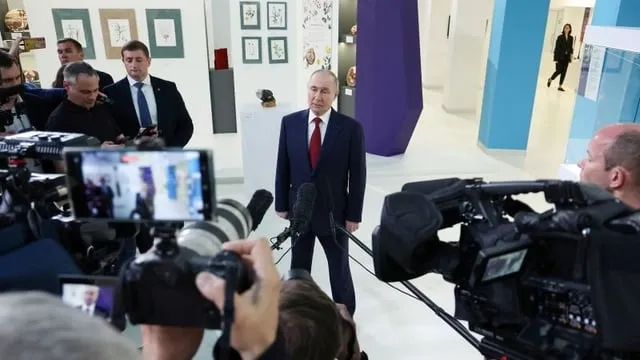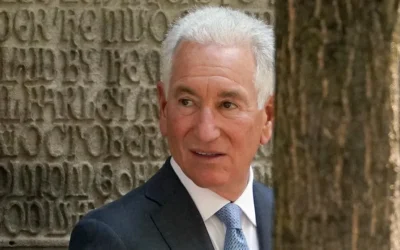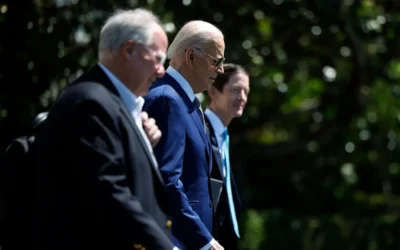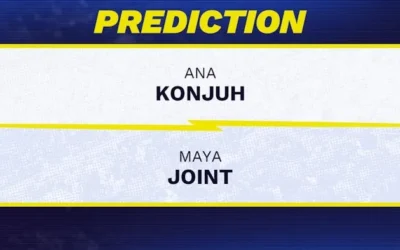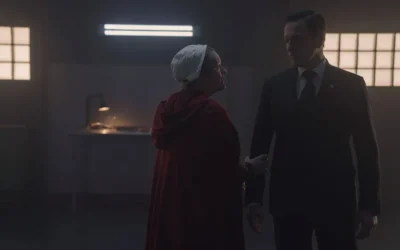The geopolitical landscape surrounding the ongoing Russia-Ukraine conflict continues to evolve, with former U.S. President Donald Trump recently making headlines with his optimistic claims about peace negotiations between Russia and Ukraine. His comments come amid a backdrop of complex international relations and a changing stance from Russian President Vladimir Putin.
In a surprising twist, Trump expressed confidence that Putin is ready for peace talks, asserting that the Russian leader has ‘had enough’ of war. This represents a significant shift from the intense rhetoric that has characterized the U.S.-Russia dynamic since the onset of the conflict in early 2022. Trump’s remarks suggest a belief that the ongoing hostilities might soon reach a tipping point, compelling both parties to consider the benefits of a ceasefire.
Yet, Trump’s assertions lead to further questions about the nature of his relationship with Putin. Over the years, Trump has often expressed admiration for Putin, stating on numerous occasions that he believes the Russian leader is a shrewd operator who prioritizes his country’s interests. This perspective has been met with skepticism by many within the U.S. government, particularly those who view Putin’s actions in Ukraine as aggressive and unprovoked.
The Background of the Russia-Ukraine Conflict
To understand the implications of Trump’s statements, it is essential to examine the context of the Russia-Ukraine conflict. The war began in February 2022 when Russia launched a full-scale invasion of Ukraine, leading to widespread condemnation from the international community. As the conflict dragged on, it resulted in significant military and civilian casualties, displacement of millions, and a severe humanitarian crisis.
Western nations, led by the U.S., have responded with a combination of sanctions against Russia and substantial military and financial support for Ukraine. This support has been a point of contention in U.S. politics, with Trump’s Republican Party divided on the issue. Some members of the party advocate for continued support for Ukraine, while others, including Trump himself, have hinted at a need for a change in approach.
Trump’s Approach to Russia and Ukraine
Trump’s presidency was marked by a unique approach to U.S.-Russia relations characterized by a mixture of cooperation, confrontation, and, at times, admiration for Putin. During his term, Trump faced accusations of being too lenient on Russia, particularly during a 2018 summit in Helsinki where he appeared to side with Putin over U.S. intelligence agencies regarding election interference.
Now, as Trump aims for a potential political comeback in the upcoming 2024 presidential election, his statements surrounding a potential truce in the Russia-Ukraine war seem designed to resonate with certain segments of the electorate. His positioning may be an attempt to portray himself as a peacemaker, contrasting with the current administration’s strategies.
The Implications of Trump’s Statements
Trump’s belief that Putin wants peace brings up several implications for both domestic and international politics. Firstly, such statements could influence public opinion regarding U.S. foreign policy. If Trump is perceived as someone who can foster dialogue and peace, it could sway voters who are fatigued by the prolonged conflict and its consequences.
On the international front, Trump’s comments may also affect diplomatic relations. While he projects an image of being the only leader who can smooth relations with Russia, it raises concerns about the signal it sends to Ukraine and its allies. The Ukrainian government has been steadfast in its demands for a complete withdrawal of Russian forces before any peace talks can take place.
Furthermore, there might be an implication of diminishing the support Ukraine has received from the West. If Trump were to regain the presidency and shift the focus away from supporting Ukraine, it could embolden Putin and potentially allow for further aggression. The nuanced balance of power in Europe remains delicate, and any perceived weakness from the U.S. could have global ramifications.
The Role of International Players
As the backdrop of this complex situation unfolds, other international actors have also played significant roles in the discussions surrounding peace talks. Leaders from the European Union, China, and Turkey have shown interest in mediating talks between the warring factions. Each country brings its interests and perspectives, adding layers to an already complex negotiation table.
China, which has maintained a strategic partnership with Russia, recently started to pivot its language regarding the conflict, advocating for a diplomatic solution. On the other hand, European nations are heavily reliant on the U.S. for military aid to Ukraine, emphasizing the importance of a unified stance to deter further Russian aggression.
The Question of Trust
At the heart of Trump’s optimism about a potential truce lies a fundamental question: Can Putin be trusted? The Russian leader has a long history of employing strategic manipulation and disinformation in pursuit of his goals. The West has frequently accused him of reneging on agreements, which casts doubt on any assurances he may offer in peace negotiations.
Many experts caution against reading too much into Trump’s statements about Putin’s desire for peace. The Kremlin often utilizes such rhetoric as a strategy to create divisions among Western allies and relieve some international pressures while continuing to pursue military objectives in Ukraine.
The Path Forward
As global tensions continue, the urgency for a resolution to the Russia-Ukraine conflict remains paramount. Trump’s remarks about potential truce talks reflect a desire among some segments of the American population for a return to stability and peace. However, achieving this will require genuine, consistent dialogue that prioritizes the sovereignty of Ukraine and addresses the root causes of the conflict.
U.S. policymakers must remain vigilant while navigating this complex terrain, maintaining support for Ukraine and pushing back against aggression while exploring avenues for genuine peace talks. As former President Trump positions himself as a potential peacemaker, the international community will be watching closely to see how his narrative will influence future relations with both Ukraine and Russia.
In conclusion, while Trump’s statements may suggest he believes in a forthcoming end to the conflict, the reality on the ground is fraught with challenges, mistrust, and the potential for further escalation. Only time will tell if true peace can emerge from the current turmoil or if the world will witness another chapter of conflict fueled by failed negotiations.

